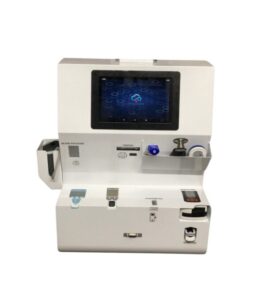The Challenges Healthcare Companies Face and Their Solutions
The healthcare industry is one of the most complex in the world. It constantly evolves as new technologies are developed, and treatments are discovered. This makes it difficult for healthcare companies to keep up with the latest changes and ensure they provide the best possible care to their patients. This article will discuss some challenges healthcare companies face and how they can overcome them.

Cybersecurity Threats
Hackers are becoming increasingly sophisticated, and they have various tools to try and gain access to sensitive information. This can put patient data and other critical systems at risk and cost companies millions of dollars in lost revenue and damages. To address this challenge, healthcare companies need to invest in robust cybersecurity systems that can identify and mitigate these threats as quickly as possible. They should also have strict policies for handling sensitive data and restrict access to authorized personnel. Additionally, healthcare companies should ensure that their systems are regularly updated and patched and have robust backup and disaster recovery plans.
IT Healthcare Investments
With the rapid growth of digital technologies, healthcare organizations are investing in IT systems and infrastructure significantly faster than ever. However, this often leads to challenges for IT departments that need to manage these new technologies and ensure that they integrate smoothly with existing platforms.
In response to this challenge, many hospitals have formed strategic partnerships with IT firms and consultants to help with the transition. These external providers can provide valuable advice on the best ways to invest in new solutions and implement them to minimize disruption across their operations. According to the team at Medicus IT, hiring healthcare IT experts will help ensure that your organization can keep up with the latest advancements in technology. With their help, you’ll be able to take advantage of new tools and systems that can improve patient care, streamline operations, and reduce costs. In addition, they can provide valuable insights into how to best use and integrate new technologies into your existing workflow.
Changing Regulations and Standards
The medical industry keeps evolving, with new regulations and standards being introduced regularly. Healthcare companies need to stay up-to-date on these changes and understand how they will impact their operations. This can be challenging, as it requires significant time and resources, but it is essential for ensuring compliance with the current rules. Sometimes, the new healthcare startups entering the market can respond more quickly to these changes, thanks to their lean and agile business models.
Healthcare centers can adopt similar approaches in dealing with this challenge by streamlining processes and automating critical tasks wherever possible. Also, they ought to work closely with government agencies and other stakeholders in the industry to stay ahead of any changes coming down the pipeline. This can help them plan for any potential impacts and take steps to mitigate these risks before they become too big of a problem.
Telehealth Implementation
With more patients seeking access to care remotely, these organizations need to figure out how to deliver high-quality care while being cost-effective and convenient for their customers. It can take time to decide which services are best delivered in person and which can be handled remotely.One strategy that healthcare companies are turning to is the implementation of telehealth programs. This allows them to deliver care virtually, using video chat or other forms of digital communication. Not only does this make it easier for patients to connect with their providers, but it can also lower costs for both parties by reducing the need for in-person visits.
That said, telehealth requires significant investment and careful planning to be successful. Companies must ensure they have the necessary resources and expertise to implement and maintain these programs. Additionally, they need to determine how best to market these new services.
Invoicing and Payments

The healthcare industry is full of complex payment structures, from complex coverage rules to high deductibles. Companies need help to track who owes what and when payments are due. As a result, many organizations have struggled with managing these processes, which has led to reduced cash flow and increased credit card fees.
Fortunately, various software solutions can now help companies streamline their invoice and payment processes. These platforms provide a centralized hub for tracking all transactions, so organizations can ensure they are getting paid on time. Also, many of these tools integrate with other systems like billing software and electronic health records, providing seamless workflows across different organizational departments.
The healthcare industry continues to evolve, and companies must stay on top of the latest trends and developments to thrive. This will involve strategic investments in IT systems, implementing telehealth solutions, and streamlining invoicing and payment processes.






